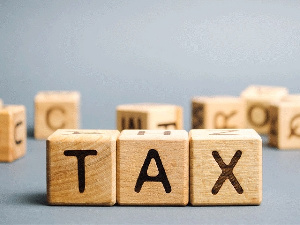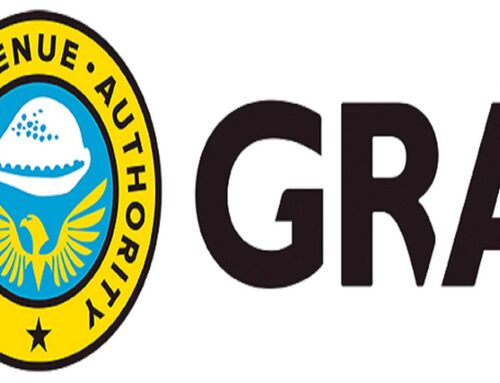Frequently Asked Questions
Q1. What is the Growth and Sustainability Levy?
The Growth and Sustainability Levy (the “Levy”) is an imposition of a the profit and gross production of Companies. The levy is imposed based on the category of industry that a company operates in. For some industries, the levy is imposed on profit before tax whilst for others, it is imposed on the gross production during the year of assessment.
Q2. Are all persons liable to pay the Levy?
Yes, the Levy applies to the specified companies and institutions are required to pay the Levy. However, specific stabilisation clauses in an agreement with Government and exemptions granted to a company may exclude the company from paying the levy.
Q3. Are there any specific regulations to guide a tax payer?
There is regulations currently. However, the Minister (of Finance) is empowered to, by a Legislative Instrument, make Regulations to amend the schedule to revise:
- The categories of companies and institutions liable to pay the Levy;
- The companies and institutions liable to pay the Levy; and
- The rate of the Levy.
Q4. How does the Levy affect my profits or production?
The Levy is payable as a percentage of profits before tax or production for 2023, 2024, and 2025 years of assessment. Companies in Category A will be required to pay a Levy of 5% of their profits before tax. Category B companies will pay a Levy of 1% of their gross production. All other entities that do not fall within Category A and B will be required to pay a Levy of 2.5% of their profit before tax.
Q5. What Category of companies are affected by this Levy and at what rate?
Companies subject to this Levy are categorized as follows;
| CATEGORY | RATE OF LEVY |
| Category A 1. Banks 2. Non-Bank Financial Institutions 3. Insurance Companies 4. Telecommunication Companies that are liable to collect and pay the Communication Service Tax 5. Breweries 6. Inspection and Valuation companies 7. Companies providing mining support services. 8. Bulk Oil Distributors 9. Oil Marketing Companies 10. Communication Tower Operators 11. Companies providing upstream petroleum services. 12. Companies and Institutions registered by the Securities and Exchange Commission 13. Special Deposit-Taking Institution 14. Electronic Money Issuers 15. Shipping Lines, maritime and airport terminals |
5% of Profit Before Tax |
| Category B Mining companies and upstream oil and gas companies |
1% of gross production |
| Category C All other entities not within Category A and Category B |
2.5% of profit before tax |
Basically, every company is affected by the Levy. The only difference is that the applicable rates vary amongst the various categories of industries.
Q6. Is it possible for a person to deduct the Levy from his taxable income?
No, the Levy paid or payable is not an allowable deduction when a person is ascertaining chargeable income for a year assessment under the Income Tax Act, 2015(Act 896) as amended.
Q7. When is the due date to file an assessment and pay the Levy?
- A person who is subject to the Levy for a year of assessment shall file with the Commissioner-General, an estimate of the Levy payable for the year of assessment by the date of payment of the first tax installment.
- Subject to any directives of the Commissioner-General to the contrary;
- An estimate of the Levy shall be in the prescribed form and provide any other information that the Commissioner-General may require.
- The Levy assessed for a year of assessment is payable quarterly and due on the 31st of March, 30th of June, 30th of September, and 31st of December of the year.
Q8. What is the difference between the Growth and Sustainability Levy (GSL) and the repealed National Fiscal Stability Levy (NFSL)?
The GSL is different from the NFSL by the widening of persons liable to pay the GSL. The repealed NFSL applied to only companies and institutions now specified in Category A of the GSL.
Q9. Is Levy returns required to be filed?
Yes, the specified companies and institutions shall file a return in respect of the Levy with the Commissioner-General in the manner and at the time and place as determined by the Commissioner-General.
Q10. Can one deduct the levy paid as an expense for the purposes of calculating Corporate Income Tax?
No. The levy is not an allowable deduction. The amount paid should be added back to the profit before tax prior to applying the Corporate Income Tax rate.
Q11. Are there any sanctions for non-compliance?
Yes, the provisions of the Revenue Administration Act, 2016 (Act 915) relating to collection, enforcement, refund, penalties, and offenses shall apply to the collection of the Levy as if the Levy is collected under Act 915.
Q12. Which authority administers the Growth and Sustainability Levy?
The Levy shall be collected by the Ghana Revenue Authority, who shall then repay all amounts collected into the Consolidated Fund.
Q13. Is the Levy applicable to Companies who have Stability Clauses in their contracts with the Government of Ghana?
The general purpose of stability clauses in a contract is to exempt a company from the effect of changes in tax laws that could affect the parties involved. Stability clauses with respect to tax, exclude companies who are parties in an agreement with the Government of Ghana from the Levy. The Levy will therefore not be applicable to such companies or entities. It is however advisable to consider the wording of a stability clause in the contract with the Government of Ghana to be able to determine whether the Levy is applicable or not.




